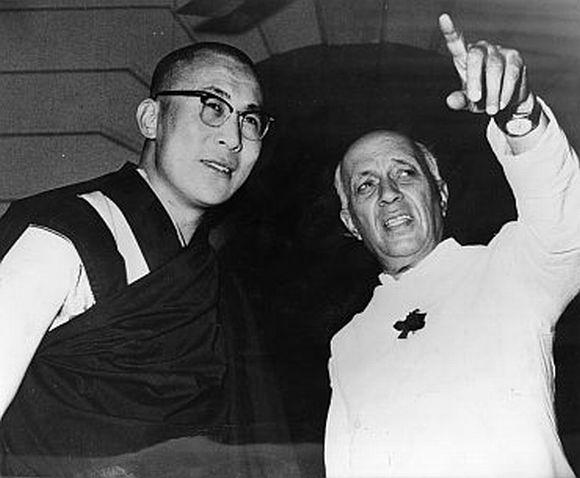Many people believe that India's first prime minister Jawaharlal Nehru made a blunder when he recognised China's sovereignty over Tibet but he did what he thought was best for his country, said the president of the Tibetan government in exile.

However, Central Tibetan Administration president Penpa Tsering told reporters in Washington that he thinks India has changed its stance over the issue after 2014.
Tsering is in the American capital to meet top officials of the Biden Administration and members of the US Congress.
Responding to a question, he said Nehru's decisions over Tibet were due to his own world vision and he had "too much faith and confidence in China".
"I don't blame only Pandit Nehru for doing that. We understand that the national interest comes first for every nation and he did what he thought was best for India at that time," Tsering said, adding that not only India, several other counties too conceded China's sovereignty over Tibet.
"With the benefit of hindsight, now many think that Pandit Nehru made a blunder. In fact, he trusted China so much that when China invaded India in 1962, some believe that he was so hurt that it's one of the reasons for his death," he said.
However, Penpa Tsering told reporters that things changed in India since 2014.
"I think India has changed his policy by not repeating that Tibet is part of PRC (People's Republic of China) because India's position is that India has to abide by the one China policy, then China also has to abide by one India policy regarding Kashmir," said Tsering.
Alluding to the Chinese aggression in Doklam and Galwan, he claimed, "When the Chinese foreign minister came (to India) a few months ago, it was more like a transit visit."
"Nothing came out of that visit. That itself shows India's policy towards Tibet and China," he added.
In Washington, DC, Tsering has so far met House Speaker Nancy Pelosi; Uzra Zeya, Under Secretary for Civilian Security, Democracy, and Human Rights; and Kurt Campbell, top Biden Adviser on Indo-Pacific.
Even though Ukraine is the global hot spot now due to the Russian invasion, the Biden Administration has not forgotten Tibet, he said urging the White House and the Congress to help create a global coalition against China and challenge its narrative over Tibet.
"Tibet has never been part of China," he said, adding that he sees a fresh impetus from the Biden Administration on Tibet.
"There is likely to be more engagement on the issue of Tibet and several bills are in the pipeline in the Congress on the Tibetan issue. The Tibet policy of the Biden Administration is more pronounced," he noted.











 © 2025
© 2025